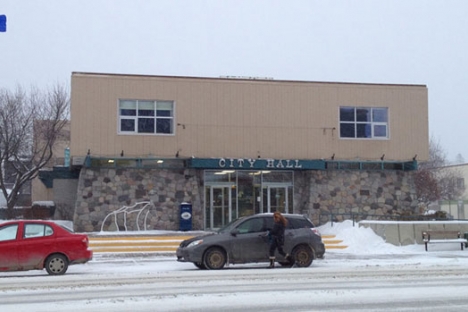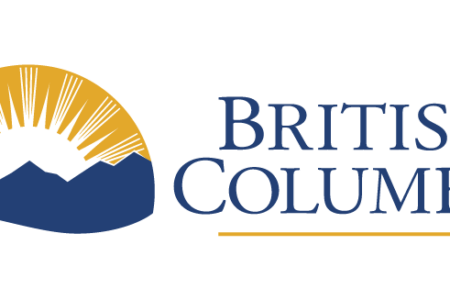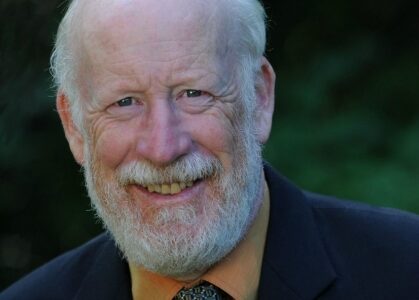Who Really Owns City Hall? 8: Legitimizing democracy
The topics explored and debated in the preceding seven Who Really Owns City Hall columns were not concerned with the powers and responsibilities delegated by the Yukon’s Legislative Assembly to communities under section 18(1)(e) of the Yukon Act. Some provinces have delegated more and different responsibilities to their municipal governments than the Yukon has. I was not concerned with the tasks assigned to municipalities, but with how and to what extent the legislation enables citizens to govern their own communities.Henry David Thoreau, in the closing paragraph of his essay Civil Disobedience (1849), asked: “Is a democracy, such as we know it, the last improvement possible in government?” Thoreau provided the focus for my review.
I have made frequent references to the Municipal Act’s fourth principle: “That public participation is fundamental to good local government” because this principle goes to the core of the democratic philosophy. The question of how to apply that principle, in practical and legal terms, and within the constraints of social, economic, and cultural realities — human reality — has tormented philosophers since the glory days of the Athenian city-state. It is easy to agree that people should govern themselves; conflict does not arise from the idea itself, conflict arises with its implementation. In 1998 the Yukon’s Legislative Assembly followed a modus operandi rarely seen in current politics. It followed a philosophical rather than ideological path to the formation and functioning of local government. That path led to a set of guiding principles which were written into the Municipal Act’s preamble, establishing a framework for the legislation to follow.
Democracy’s credentials arise out of the extent to which citizens are empowered to participate in the decisions (note the plural) that govern their community. Democracy is conscious of the fact that citizens, not governments, have to live with and pay for the consequences of decisions made by governments. Free and fair elections are not democracy’s sole identifier. A healthy and effective democracy is built on what Robert D. Putnam described in Making Democracy Work (1993) as a “horizontal relationship” among citizens in their communities. The Municipal Act’s Public Votes Division (Division 16, Part 3) promotes such horizontal relationships.
From a Canadian perspective, the measures provided in the Public Votes Division have revolutionary qualities. These measures give citizens the power to petition their elected council for referendums on bylaws or resolutions on virtually any subject, and for referendum results to be decisive. The Yukon’s 1998 Municipal Act opened a new era in Canadian democracy. It was a radical departure from entrenched municipal government procedures. It was inevitable that these new democratic measures would be challenged in the courts. The challenge did not come from citizens seeking to broaden the application of the Public Votes sections; it came from a municipal council seeking to restore council’s traditional powers at the expense of the citizens’ new powers.
The August 2009 Court of Appeal’s decision in Whitehorse(City) vs. Darragh imposed severe limits on the application of Public Votes Division powers. It limited the application to all but trivial matters. The Court’s decision added all land use decisions from OCP to zoning to the list of budget and taxation bylaws already exempted by the Legislative Assembly. The petitions, initiatives, and referendums held in the Yukon since 1998 would not have been allowed had the Court of Appeal’s ruling been applied from the outset. It is important to note, however, that the Court of Appeal did not rule that the Yukon’s Legislative Assembly did not have the authority to empower citizens to make the kinds of decisions citizens did make with the 2006 Whitehorse greenspaces referendum and the 2008 Dawson City sewage lagoon referendum.
The Yukon Supreme Court, hearing Whitehorse(City) vs. Darragh in the first instance, found that the Public Votes Division applies to all bylaws save those which the Legislative Assembly had specifically exempted. The British Columbia-based Court of Appeal reached a different conclusion. It relied on provincial precedents where it was established that a bylaw procedure which calls for a mandatory public hearing amounts to a separate and distinct procedure. By this interpretation the Municipal Act establishes two bylaw procedures, one with mandatory public hearings and one allowing for optional referendums. The Act does not state that the Public Votes Division applies to both bylaw procedures, and the Court of Appeal therefore concluded that the Public Votes Division does not apply to the bylaw procedure which prescribes a mandatory public hearing. The Yukon government remained silent throughout the proceedings. The question Yukoners must consider in the course of the Municipal Act review is which court, the Yukon Supreme Court or the Court of Appeal, correctly interpreted the legislation’s original intent. The Public Votes Division must be amended to confirm that it applies to both bylaw procedures if Yukoners still deem public participation to be fundamental to good local government. This is not a legal question; it is a political/philosophical question for Yukoners to answer.
The procedures and rules established in the Yukon’s Municipal Act prevent the abuses and misuses of the 1980 and 1995 Quebec sovereignty and the 2002 British Columbia Aboriginal Treaty referendums. The Municipal Act prevents abuse by placing the power to call referendums in the hands of citizens and by accepting their decisions as final. These procedures do not easily lend themselves to abuse for political strategic purposes by governments. Their democratic value is in their presence; it is not in the occasional referendum. That is so because the ever-present possibility of a referendum being called on any issue has a profound influence on the substance and character of political discourse in a community.
Controversial issues give rise to multiple constituencies: young, old, male, female, business, labour, residential, commercial, economy, ecology, etc. Difficult issues court a multitude of opinions on how to best deal with them, making it more difficult to come up with acceptable solutions. All concerns must be heard and to some degree at least recognized and reflected in a solution if such is to be endorsed by the community. The process encourages compromise resulting in solutions endorsed by coalitions which are as random as are the natures of the issues that may confront a community. No two issues are likely to galvanize an identical voter coalition. Decisions made by citizens directly are consequently less likely to be dictated by rigid ideology.
Knowing that a binding referendum may be called gives a council (and its administrators and consultants) an incentive to hear, to actually listen, to what people have to say. How can a compromise be crafted without first understanding what people think? Those who feel strongly about an issue, not only council members but anyone with an interest in the subject, have an incentive to build a coalition of like-minded citizens. That necessity favours lively and open debate in the community over closed-door lobbying for majority support on council. It is what Putnam refers to as a horizontal relationship of engaged and empowered citizens vs. a vertical relationship of a passive citizenry governed by power that, albeit elected, is concentrated in the hands of the few at the top.
* * *
Councils make the bulk of decisions in any municipality; the Municipal Act’s Public Votes provisions do not change that reality. But what is a municipality, what defines a community, and what enables a community to govern itself as a municipality? A municipality’s boundaries and the structure of its council have an enormous impact on the democratic quality of a local government. Where and by what criteria municipal boundaries should be established concerns those to be included as much as it does those to be excluded. Public participation in establishing municipal boundaries is more than desirable, it is critical. Citizens must be able to shape a municipality’s boundaries, be that expansion or contraction. Economic, social, and cultural changes may open a chasm and split a hitherto cohesive community, making it increasingly difficult if not impossible for a council to serve the legitimate needs of two emerging communities within a single municipality. A municipality’s identity and boundaries may have been reasonable at one time, but that is not to say that the status quo shall forever prevail. Do citizens of a neighbourhood see themselves as constituting a distinct community, and should it therefore be established as a separate municipality?
Finally, casting a ballot is only one aspect, albeit a critically important one, of a free and fair election. Of equal importance is what the counting of the ballots produces after the polls are closed. The system by which election results are interpreted to form a governing body is as critical to fair representation as is the voting itself. Should citizens be represented by ward councillors? If so, what kind of wards? Should the mayor be elected directly or indirectly? Should there be a limit on successive council terms? It is imperative in a democracy that citizens have the power to define their municipality and to decide how their vote is to be converted to form the council that will govern on their behalf.
The questions raised and explored in this series of columns go to the core of the democratic idea. That such questions be addressed in a municipality’s Official Community Plan conforms to the principles of the Yukon’s Municipal Act. You need to participate in the review of your Municipal Act. Think about it and become engaged. Demonstrate that the democracy you now have is not the last improvement possible in local government.
Andre Carrel is a retired City Administrator, journalist, author, and full-time grandpal.
























